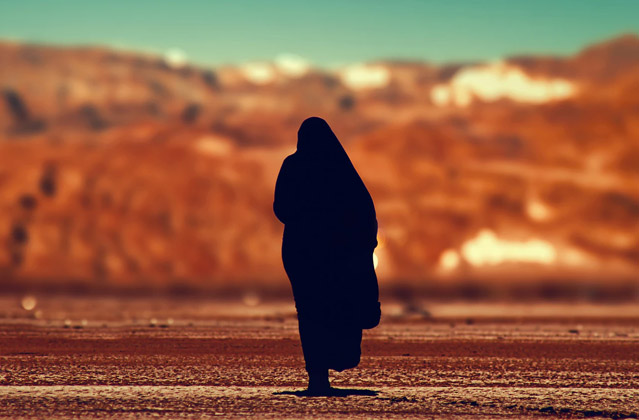When we examine the lives of the most righteous and highly-ranked women in Islam, it becomes clear which characteristics earned them such a noble status. It was narrated by Ibn ʿAbbās, that the Prophet (sall Allāhu ʿalayhi wa sallam) said: “The best of the women of Paradise are Khadījah b. Khuwaylid, Fātimah b. Muhammad, Āsiyah b. Mazāhim (the wife of Pharaoh), and Maryam b. ʿImrān.”[3]
Maryam (raḍiy Allāhu ʿanhā) is the only woman mentioned by name in the Qur’ān and the only woman who has an entire chapter named after her. She is described not just as a ‘qānitah’ (obedient female slave), but as from the ‘qānitīn’ (obedient slaves) because she is ranked at the top from amongst both the women and the men.
She was a modest and bashful lady and devoted her entire life to the worship of Allāh (subḥānahu wa taʿālā). Although she was unmarried, she miraculously gave birth to ʿĪsā (ʿalayhi al-Salām). Accused of losing her chastity, she was tested with that which she had protected herself from the most. Twice in the Qur’ān, Allāh (subḥānahu wa taʿālā) praises Maryam (raḍiy Allāhu ʿanhā) as “the one who guarded her private parts”.[4] Despite the difficulty of the trial, she wholeheartedly submitted to the decree of Allāh and remained patient.
Khadījah (raḍiy Allāhu ʿanhā) was the first woman to accept Islām. When the Prophet (sall Allāhu ʿalayhi wa sallam) first received revelation, he was frightened and thought that he had gone mad. The first person he turned to and sought solace from was his wife, Khadījah. She responded to him in the most appropriate manner, supporting him and reassuring him with words of comfort: “By Allāh, Allāh will never disgrace you!”[5]
The mutual trust, confidence, and loyalty in the relationship between her and the Prophet (sall Allāhu ʿalayhi wa sallam) is something to aspire to.
The daughter of the Prophet (sall Allāhu ʿalayhi wa sallam), Fātimah (raḍiy Allāhu ʿanhā), is renowned for the admirable relationship she shared with her father. As a child, she would rebuke the Quraysh for the maltreatment of her father. After the death of her mother, Khadījah, she cared for and loved her father so devoutly that she was nicknamed Umm Abīhā – the ‘Mother of her Father’. Growing up, she heard and saw women hurling rubbish and bad mouthing her noble father but was never frightened or disheartened. Instead, she was a great source of comfort for the Prophet (sall Allāhu ʿalayhi wa sallam).
As for ‘Āsiyah (raḍiy Allāhu ʿanhā), we have already spoken of her virtue as she remained devout to Allāh in the face of an oppressive husband, and also as she provided a righteous upbringing for her foster-son, Mūsā (ʿalayhi al-Salām).
When looking into the lives of these noble women, we learn that their virtue was found in:
• Their relationship with Allāh;
• Their relationship with their families.
Thus, we can appreciate that in order to be successful in the eyes of Allāh (subḥānahu wa taʿālā), we should focus our efforts on our relationship with Him and our relationship with our families, being careful not to let the distractions of this worldly life take precedence.
We pray that Allāh (subḥānahu wa taʿālā) allows us to benefit from His majestic words and enables us to implement the many lessons discussed in this Sūrah. Āmīn.














































